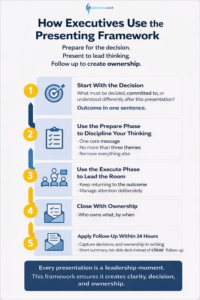What Harvard Business Review has really taught us about coaching

Over the past decade, Harvard Business Review (HBR) has shared a wealth of insights on coaching — much of it aligning with what I see daily in my coaching practice and what I often write about: emotional resilience, VUCA leadership, and healthy team dynamics.
Here is the essence of HBR’s thinking, distilled and modernized.
Coaching, according to HBR
HBR consistently describes coaching as a collaborative, developmental partnership that helps individuals:
- see themselves more clearly
- build new habits
- strengthen leadership behaviors
- and navigate complexity with greater clarity
Much of this connects directly to my work on sensemaking and self-leadership in a VUCA world.
The types of coaching HBR highlights
Executive coaching
For senior leaders who need to develop emotional intelligence, strategic presence, and stronger self-regulation under pressure.
(Connected to my post about emotional outbursts and the importance of self-leadership.)
Performance coaching
Focused on specific skills and behavioral improvements.
Developmental coaching
Long-term growth tied to identity, purpose, resilience, and adaptability — the foundation of my Reflect–Reset–Align–Rise™ framework.
The impact of coaching
Research published by HBR consistently shows that coaching leads to:
- improved leadership behavior
- stronger emotional intelligence
- increased employee engagement
- healthier team dynamics
- better change adoption
This echoes a key theme in several of my posts:
👉 employees don’t disengage because they don’t care — they disengage when leaders stop listening.
What makes coaching effective
HBR repeatedly emphasizes that the quality of the coaching relationship determines the quality of the outcome. Effective coaching requires:
- active listening
- powerful, reflective questioning
- clear and aligned goals
- feedback loops and accountability
These are the same behaviors I champion in my VUCA leadership programs: slowing down, listening up, and making sense of complexity.
The challenges HBR identifies
Coaching isn’t magic. HBR highlights obstacles such as:
- resistance to change
- misalignment between personal and organizational goals
- variability in coach quality and methodology
- emotional blind spots leaders underestimate
All themes I often see in my coaching practice and write about in my posts on negativity loops, emotional triggers, and the impact of unspoken team dynamics.
The bottom line
HBR’s message closely mirrors what I’ve experienced in over two decades of coaching:
- Coaching is not about fixing people — it’s about helping them rise.
- It enables leaders to develop emotional resilience, clarity, and presence in uncertain environments.
- And it helps organizations build cultures where trust, connection, and psychological safety can grow.
When leaders transform, the system follows. And that is why coaching remains one of the most powerful tools for real, sustainable leadership development. alignment with broader business objectives.
Contact me if you feel coaching could be helpful for you.




